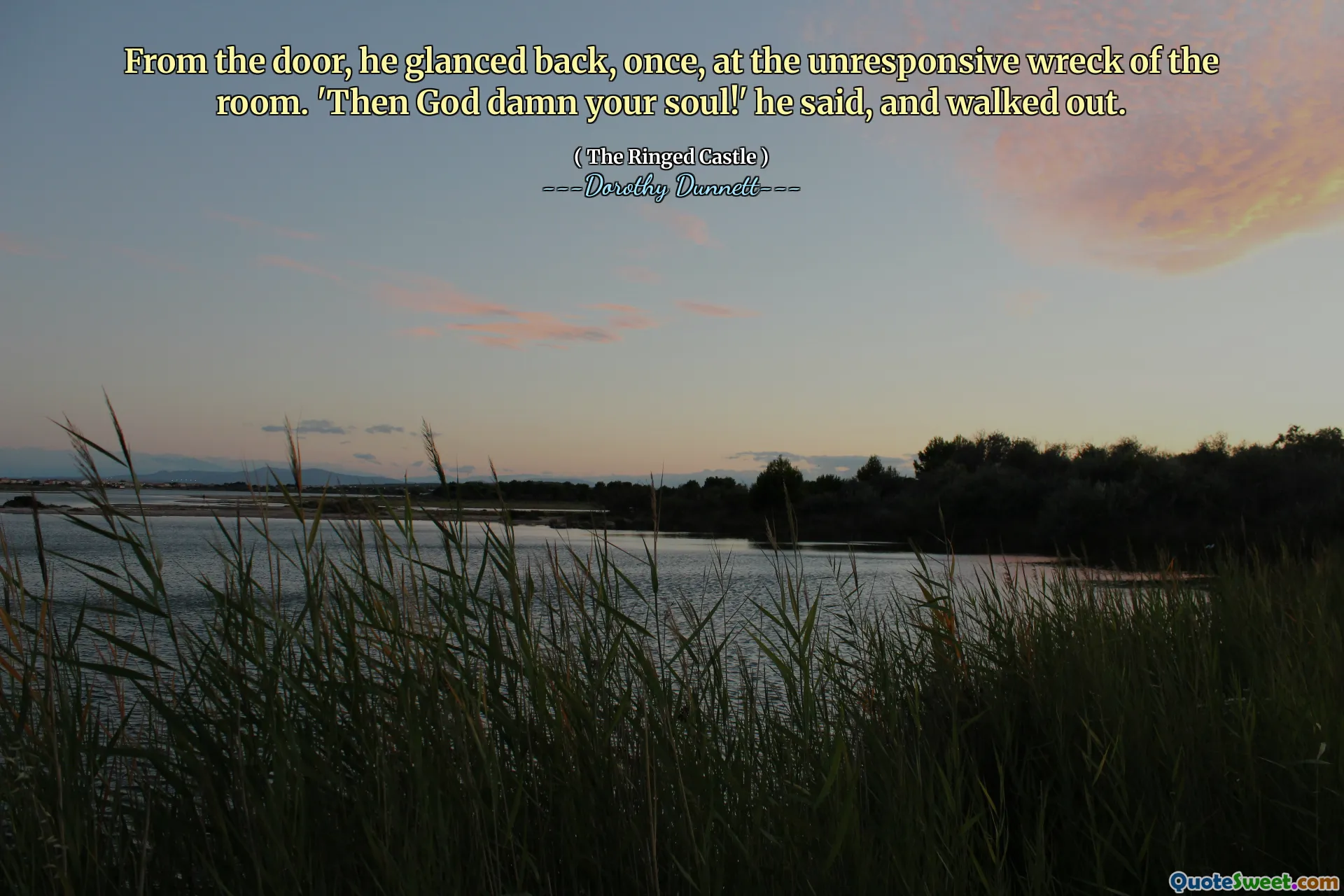
From the door, he glanced back, once, at the unresponsive wreck of the room. 'Then God damn your soul!' he said, and walked out.
This quote captures a moment of intense emotional release and finality. The character's action of glancing back at the room—described as an 'unresponsive wreck'—symbolizes its state of ruin, perhaps physically, emotionally, or both. The phrase 'Then God damn your soul!' is a powerful exclamation of anger, betrayal, or deep frustration. It suggests that something has irrevocably broken within the character—possibly a sense of despair or a feeling of having been wronged. Walking out after such a declaration signifies a decisive break from the past or from pain. The imagery of leaving a wreckage behind echoes themes of destruction and abandonment, emphasizing that the character chooses to move forward, leaving behind the remnants of whatever trauma or emotional burden once resided there. This moment embodies a profound turning point—where internal conflict culminates in a outward expression, marking the end of an emotional chapter. The fierce language underscores the intensity of the feelings involved, revealing inner tumult that perhaps words cannot fully express. Overall, this excerpt reflects on the human condition—struggles, loss, anger, and the inevitable choices we make to forge ahead despite brokenness. Such moments resonate on a universal level; everyone encounters times when they must confront their pain and decide whether to dwell within it or leave it behind and seek new beginnings.





